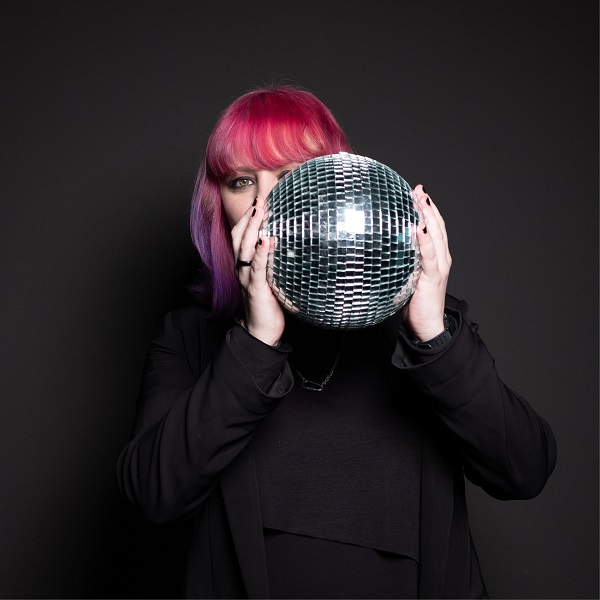Tracks and Tracksuits: How Fashion Plus Music Can Equal Big Business
Quick – think about Grunge, Glam Rock, or Hip Hop. What immediately popped up in your head probably relates to clothing, right? The flannel shirts, the glossy jumpsuits, the exuberant jewellery. Fashion is tightly bound to music artistry and identity, and with extra time on our hands during the current pandemic, we took a closer look at two strategic mindsets.
The mission: what can we learn from artists who well and truly made the most out of Wu-Tang’s “C.R.E.A.M.” mentality?
An industry rule dictates the artist is always more than the music they produce. The artist is a brand. As such, successful musicians take great care in managing their brand image, and unique fashion statements are a great way to achieve and expand it. Not only does your style make you stand out – it inspires others to copy your fit, and makes you interesting to brands seeking out partnerships.
➡️ Strategy #1: Have the look, and they will book
Staying true to what feels comfortable can make you relatable to more people you might think.
Case in point: Crocs, the Internet’s ugly stepchild nobody would be caught dead wearing, made a smart marketing move and partnered up with Post Malone in 2018 and 2019. Not only did they excite the world with their ridiculous foam clogs, but SOLD OUT entire stocks in mere minutes. Twice.
On the flipside of the Croc is Lil Uzi Vert, who in 2019 decided to retire from smashing out SoundCloud bangers for a bit, and reinvented his Instagram into a carefully constructed fashion blog detailing his style of the day. Fashion magazine interviews and photoshoots followed, and designer brands were happy to jump on opportunity to reach Uzi’s 11M Instagram followers. When perusing Uzi’s insta-fits, one eagle-eyed reporter estimated a cool $500k worth of clothing in Uzi’s apartment.
👉 Where they got the idea from
Such “brandvertising” isn’t new. Before Instagram and wide-spread visual media, there was this thing called radio, and a research done by University of Colorado Denver discovered that between 2002 and 2010, the 30 most popular US songs of each year always included between 200 and 260 words that reference products, well-known people or places. That’s more than 8 mentions per song – and more than double than in the decade before it.
Going even further back, Run DMC’s 1985 chart-topping hit “My Adidas” reportedly boosted the company’s sales for up to 20%. Similarly, Sister Sledge’s 1979 disco smash “He’s the Greatest Dancer” brand-dropped Gucci, Fiorucci, and Halston, and awareness of those brands was said to skyrocket.
While these proto-influencers might have released the tracks as love letters to brands they appreciated, they were savvy enough to make the most of it later: after “My Adidas” made it big, Run DMC famously secured a $1M endorsement deal – a feat unheard of for a musician, let alone a Hip Hop act until then. Today, this kind of “love triangle” between performers, brands, and consumers is as common as muck.
➡️ Strategy #2: Empire state of mind
The previous strategy begs the question if tracks are “real estate” for brands and products. If you’d ask Jay-Z, the real question is: if your tracks promotes a brand, why isn’t it your own?
In 2019, Jay-Z became Hip Hop’s first billionaire. The secret to his fortune lies in exceptional entrepreneurship that spans music, a streaming service, entertainment company, high-end cognac, real estate, art, business investments … and of course, fashion. His Rocawear line was established in 1999, and sold years later for over $200M. In 2017, he launched a collab streetwear clothing line to promote his “4:44” album. And all the while, he used his tracks as a platform to promote his business and teach new generations with lyrics that are a bit unusual in the Hip Hop realm:
“You wanna know what's more important than throwin' away money at a strip club? Credit.” – Jay-Z, The Story of O.J.
Does the strategy work? Ask Rihanna, Jay-Z’s protégé, who was crowned world’s richest female musician in 2019. Her empire extended into luxury cosmetics and lingerie, delivering products for women of all colors and body shapes. Sure, she reportedly makes over $20M a year with music alone, but her strategic partnerships - for example, taking the helm as a creative director for Puma in 2014 - are what brings in the majority of her fortunes. According to a 2016 research, her fans are almost 4 times more likely to purchase products from her than any other celebrity, so we can assume that Ms Fenty can pick and choose her business partners any time of the week.
👉 The “chicken or egg” question
While some artists venture into luxury and global brands, some are keeping it closer to the street (and heart).
If we’re talking manifesting destiny, Tyler, The Creator picked the perfect name. Alongside producing his own tracks since he was a teenager, creating and directing oddball videos, and launching own apps, he’s also heavily into fashion since ...well maybe since before making music.
From boasting about making a quarter of a million dollars off selling socks on Earl Sweatshirt’s “WHOA”, Tyler went to do his own thing and established a colourful streetwear line, and further blurred the lines of music and fashion statements with his latest “Igor” project. The result? Tyler is estimated to be worth around $6M – not a shabby feat for an alternative Hip Hopper under 30.
Whatever strategy you think works best, own it. And to stay on track with all your stats and trends in the music industry, try Viberate's music analytics. There's loads of features you can work with – and you can try them out in a 30-day free trial.
Cover photo: Ben Kaye/Governor’s Ball Music Festival 2019
Read this next:
Boss Baby: Marketing Tactics You Can Learn from DaBaby's Unstoppable Rise
Unique Path to Success: From Instagram Videos to All That Shmoney

